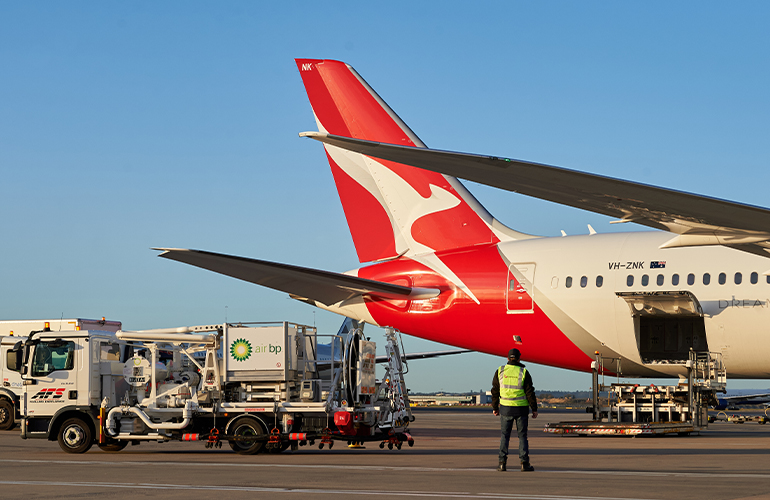SYDNEY, AUSTRALIA — Australian flag carrier Qantas is expanding its use of sustainable aviation fuel (SAF) by tapping into supplies in California to help reduce carbon emissions on its flights from LA and San Francisco to Australia.
SAF produces up to 80 percent fewer emissions than traditional jet kerosene and is compatible with existing aircraft. Airlines around the world are increasing their use of SAF, with demand outstripping supply in most jurisdictions. US biofuels company Aemetis will supply almost 20 million liters of blended SAF each year for Qantas flights, starting in 2025. The sustainable fuel will be produced at Aemetis’ plant currently under development in Riverbank, California. It will come from certified feedstock from waste products that are then blended with normal jet fuel.
Qantas is pursuing a number of additional deals to add more SAF in the US and other international airports. The national carrier is aiming to be net carbon neutral by 2050 and will outline an interim target later this month.
Qantas Group CEO Alan Joyce, who met with Aemetis executives in Los Angeles today, said sustainable fuels were critical to aviation’s transition to a low emissions future.
“Climate change is front of mind for Qantas, our customers, employees, and investors, and it is a key focus for us as we move through our recovery from the pandemic,”
Mr. Joyce said.
The Qantas Group has four pillars to support its target of net zero emissions by 2050:
- Sustainable aviation fuels – Working with governments and bioenergy providers on the development of a sustainable aviation fuel industry in Australia and international supply in key ports.
- Fleet modernisation – Investing in next generation and lower emission aircraft, which reduce fuel burn.
- Operational efficiency – Reducing single use plastics and waste to landfill as well as ongoing work to reduce fuel burn, including through smarter flight planning.
- Carbon offsets – Investing in high quality flagship Australian and International projects.

